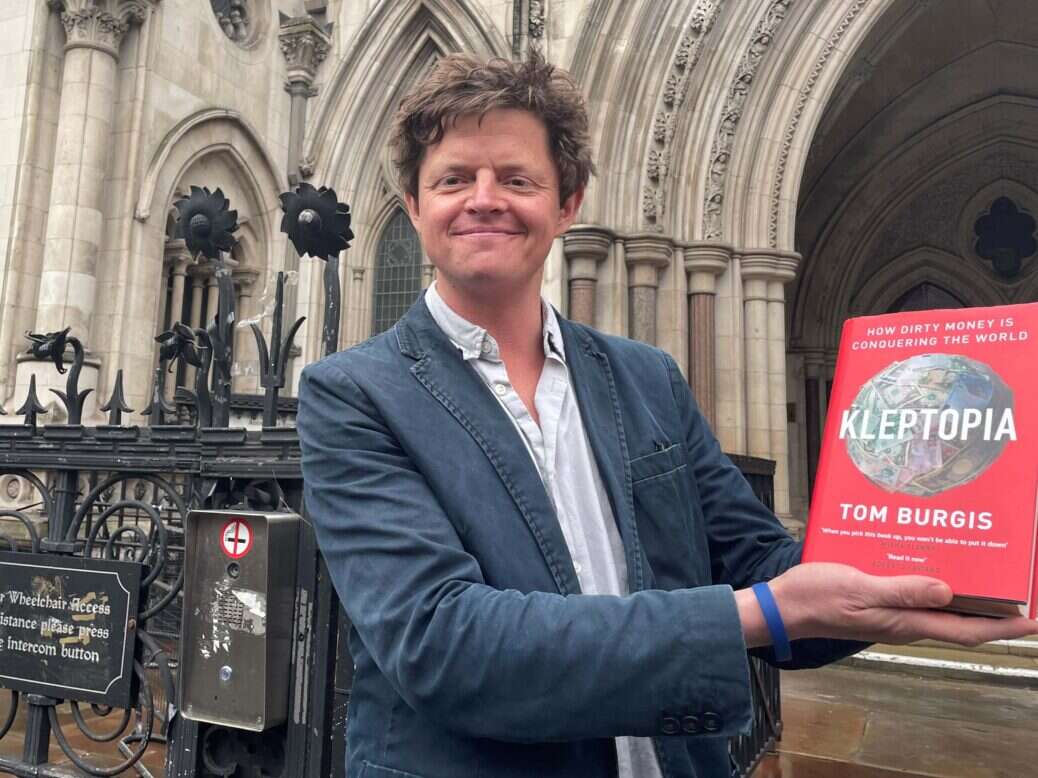
Kazakh mining group the Eurasian Natural Resources Corporation has dropped a libel lawsuit against the Financial Times and its journalist Tom Burgis, the newspaper has revealed.
The FT said the ENRC, which separately brought a libel claim against Burgis and his book publisher Harper Collins that was dismissed by a High Court judge earlier this month (see below), had brought legal action over two articles.
FT editor Roula Khalaf said: “I’m pleased to hear of ENRC’s decision to withdraw a claim that was always without merit and had put Tom Burgis under enormous strain. The FT and all our reporters, including Tom, will continue to investigate the activities of businesses and individuals, however powerful or wealthy.”
Burgis, author of Kleptopia: How Dirty Money is Conquering the World, said: “It’s harder to imagine a higher public interest than reporting on the deaths of potential witnesses in a major criminal corruption case. I’m delighted that this attack on our journalism has failed.”
Burgis said the ENRC tried to stop people from reading his October 2020 investigation headlined: “Silent witnesses: what do three corpses have to do with a corruption case?”
The ENRC said in a statement that it continues “to dispute many allegations contained within the book, including corruption, in the strongest possible terms”.
Original story 2 March 2022:
A libel claim brought by a Kazakh mining giant over a FT journalist Tom Burgis’ book about “dirty money” has been dismissed by a High Court judge.
Eurasian Natural Resources Corporation (ENRC) sued Burgis over his book Kleptopia: How Dirty Money is Conquering the World, first published by Harper Collins in September 2020.
ENRC’s lawyers had argued that parts of two chapters of the book would be understood by a ordinary reader as claiming that the corporation had three men murdered to protect its business interests, or there was a reasonable ground for suspicion.
However, at a preliminary hearing in the case on Wednesday, Mr Justice Nicklin ruled that those parts of the book did not refer to the corporation, dismissing the claim.
He said: “Only individuals can carry out acts of murder or poisoning, only individuals can be motivated to do so to protect their business interests.”
The judge added that the book does not allege the three men were murdered, but says their deaths were suspicious.
ENRC must pay £50,000 in legal costs to Burgis and Harper Collins, and was denied leave to appeal.
Burgis said: “Thanks to my courageous sources, I wrote a book about what I believe is the greatest threat to freedom today: the rise of kleptocracy. I’m delighted that this attempt to censor Kleptopia has failed.”
A Harper Collins UK spokesperson said it was “delighted that this egregious case of lawfare has been dismissed”.
“HarperCollins is committed to publishing high quality investigative non-fiction and to defending our authors in the face of legal attacks from those who would seek to use the UK courts to silence them.
“It is grossly unfair that yet again HarperCollins and our author have had to risk substantial legal costs and personal liability defending public interest journalism. This threat came from a company which the judge correctly described as ‘a legal device’, which shamelessly claimed that it, not the oligarchs named in the book as the people who had secrets to protect, had been libelled.”
Adrienne Page QC, for ENRC, had said in her written arguments: “It may be accepted that killing a person, like every other action, cannot physically be carried out by a corporation; it must be carried out by individuals.
“The reader would understand that the murders were carried out at the behest of the claimant in order to protect its dirty secrets.”
However, lawyers for Burgis and Harper Collins had argued that the parts of the book in the claim did not refer to ENRC.
Their barrister Andrew Caldecott QC told the High Court: “The question is whether the suspicious nature of the deaths would be linked by the ordinary reader to individuals, rather than a company. If it is only individuals, then the claim fails.”
Harper Collins was separately recently targeted by another case relating to former FT Moscow correspondent Catherine Belton over her book Putin’s People.
Cases brought by several Russian oligarchs, most prominently Chelsea FC owner Roman Abramovich, were all settled with apologies and amendments made to the book but the case cost Belton alone £1.5m according to David Davis MP.
Both cases were dubbed strategic litigation against public participation, or SLAPPs, which aim to intimidate and silence journalists using UK courts.
Labour MP Liam Byrne has described Burgis’ case in Parliament as “oligarchs… seeking to silence him”. In January he told a Commons debate that SLAPP claimants “file the most ludicrously exaggerated claims”, in this case the allegation that Burgis had “said that a corporate entity had ordered the murders”.
“There are extraordinary exaggerations and twisting of what has actually been written,” Byrne said.
Additional reporting by PA Media
Picture: Jess Glass/PA Wire
Email pged@pressgazette.co.uk to point out mistakes, provide story tips or send in a letter for publication on our "Letters Page" blog
